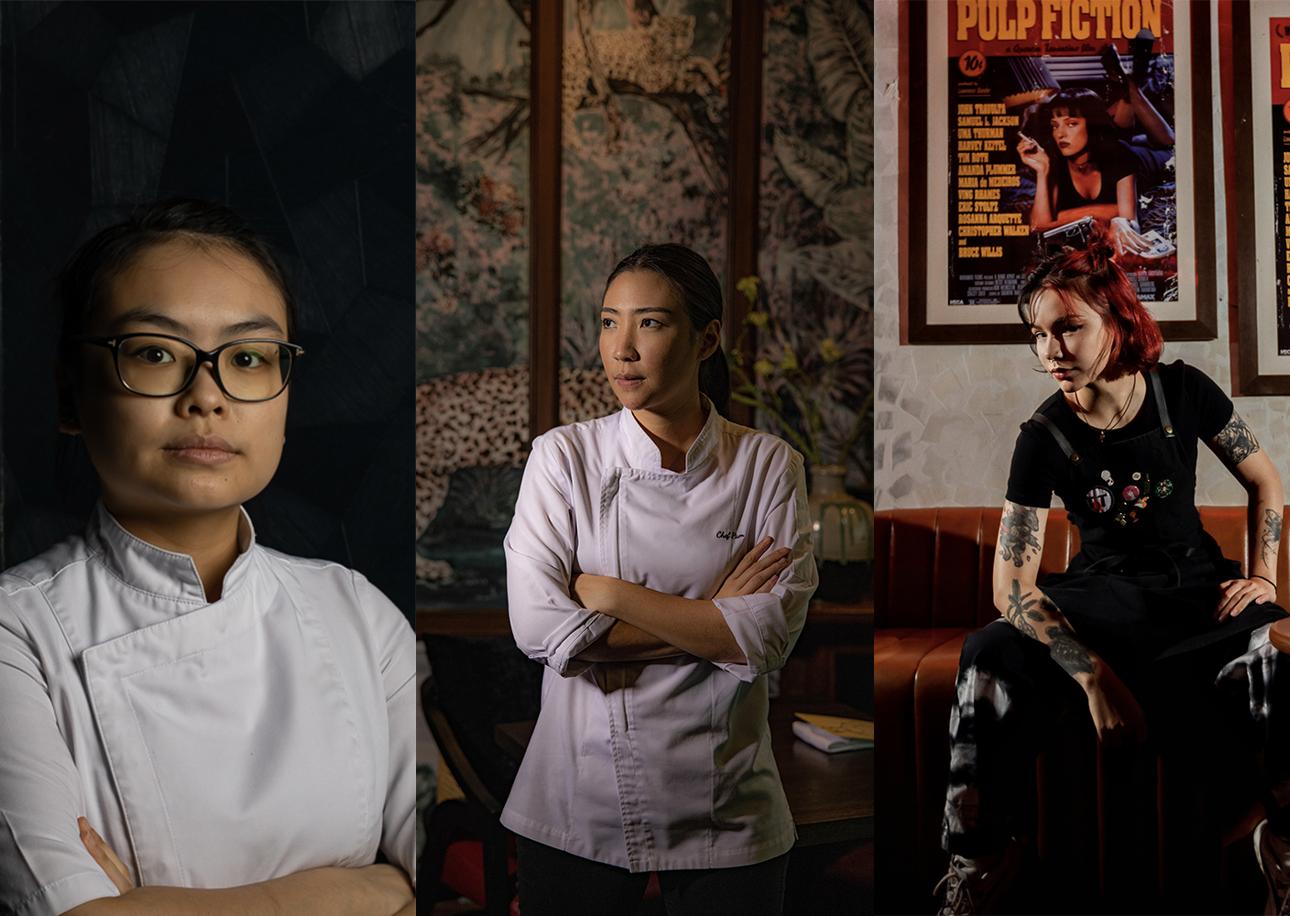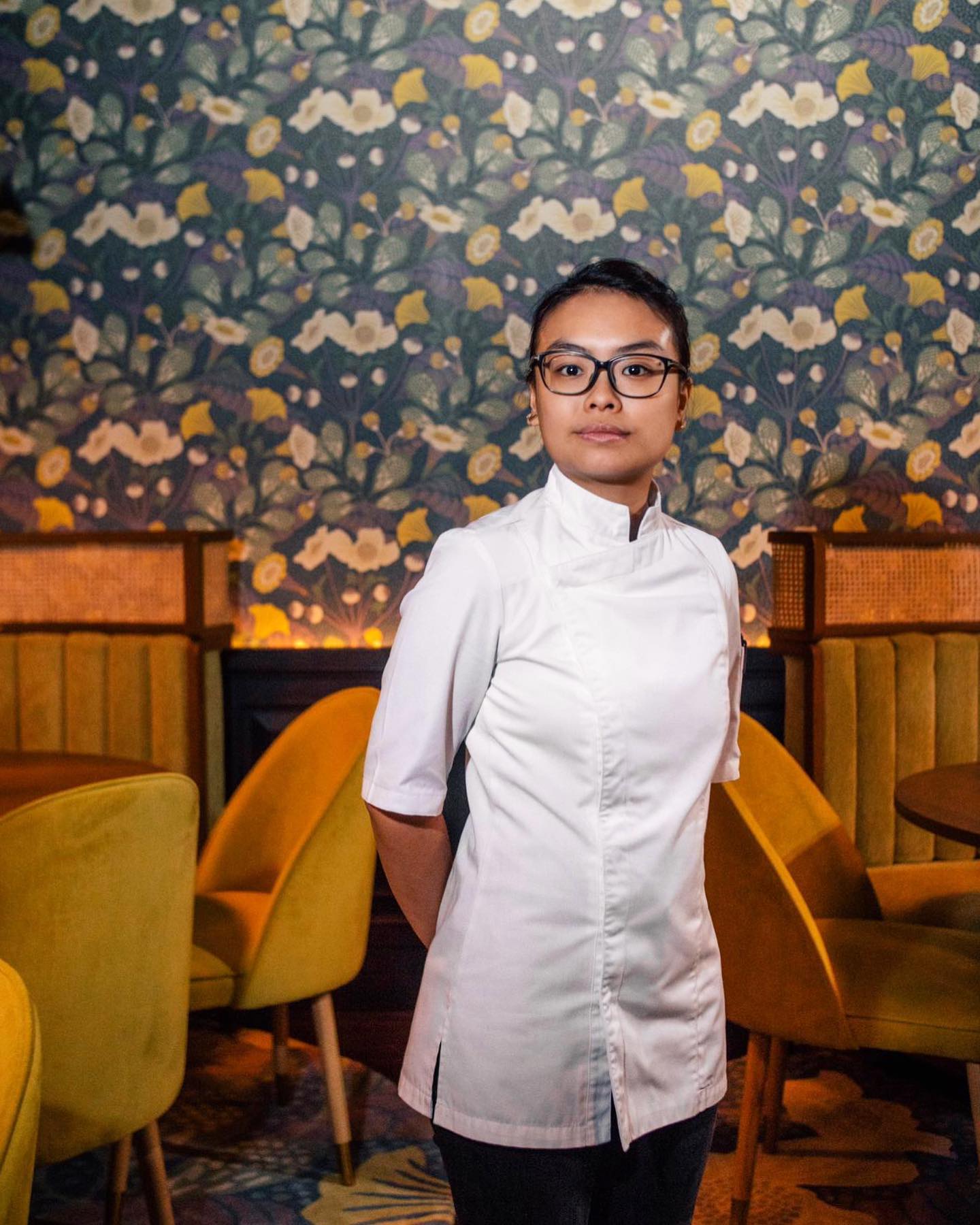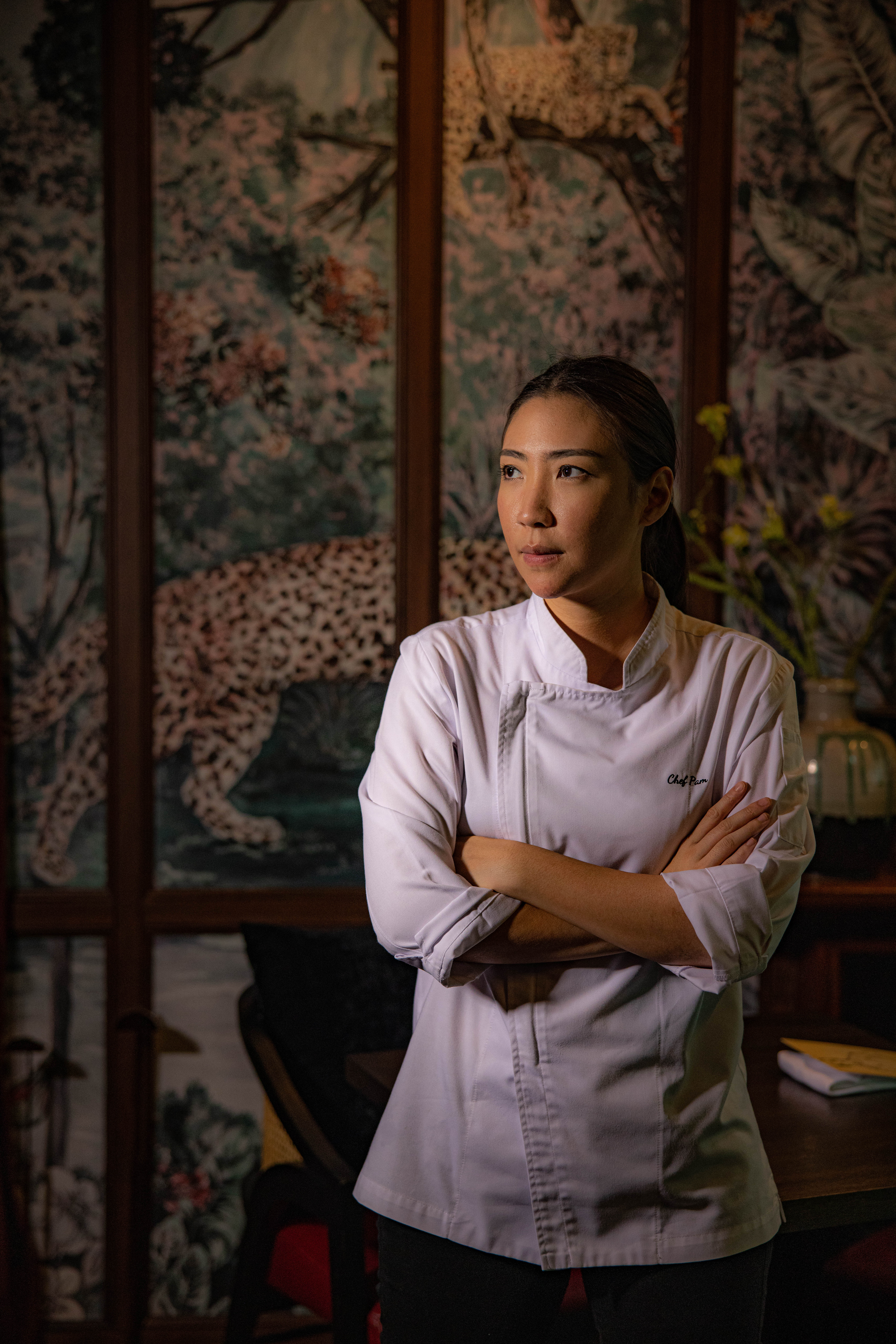9 Famous Thai Celebrities’ Cafes and Eateries in Thailand
A look at a list of Thai celebrities who own restaurants and ...

[This story first appeared in Koktail Magazine Issue 4.]
At the opening ceremony of my MBA programme this year, the speaker proudly shared the statistics on the current batch of business leader hopefuls, “70 per cent men and 30 per cent women”. The percentage wasn’t what I was expecting for a top-tier business school in Europe. The number kept me up that night, pondering the reason for it. Coming from Latin American culture, I know too well that gender norms and societal expectations weigh heavily on what women end up pursuing in their lives. Worldwide, there are still certain industries that are considered no place for a woman when we look at demographics. Energy, construction, politics, and—one of my most admired—F&B are some of the sectors that have the lowest representation of women at the top and where change is also lagging.
While knowing all this to be the reality of the world, I am still perplexed by “30 per cent”, probably because I spent the last five years working in lifestyle media in Bangkok where I was lucky enough to be surrounded by successful and talented women, many of them in F&B. As these women are still the anomaly, the breakthroughs, I wanted to speak to three very different female trailblazers in Thailand’s food and beverage scene to understand how they did it (and also because I miss them and their tasty creations so much.)

Michelle Goh, co-owner of Bangkok-based European contemporary restaurant Mia, is an award-winning pastry chef who does not sugarcoat the personal sacrifices required to make it in the F&B industry. “As chefs and hospitality workers, we sacrifice our time, our bodies, and our loved ones to pursue this career. Not only are the hours long, but the job itself can also be extremely taxing. Chefs are on their feet 12 hours a day, carrying or lifting heavy items and in constant threat of injuring themselves, whether that be by cutting, burning, or slipping. People also tend to forget that we have to sacrifice a lot of personal time with friends and family, especially during the holidays and weekends when it is the busiest time for restaurants and hotels.”
A combination of all the above is understandably why we see less Michelle Gohs in the industry. Goh, however, shares that in the last few years, she has seen changes that are priming kitchens to become a better and more attractive place to work. These include employers prioritising the work-life balance and mental health of their staff, as well as higher remunerations and more time off to maintain valuable staff. “In a few kitchens I know personally, head chefs and owners are choosing to stop having hostile work environments where the chefs bully the commis and expect them to produce results; instead, they are choosing to guide them and show them the way,” explains Goh, whose kitchen currently consists of 85 per cent female staff. “This isn’t something we planned,” she clarifies, “but what has happened organically through the years.”
Mia is just one example of a restaurant in Bangkok that is empowering women in the field through positive leadership. Another culinary powerhouse who sees disparity as an area of opportunity is Pichaya Utharntharm, or chef Pam of Chef’s Table, Smoked, and Potong Restaurant—all highly rated endeavours, especially the first and the last, which have been raved about by credible food guides and critics, not to mention Koktail’s own Thailand’s Favourite Restaurants. The multicultural chef began her culinary career in the United States, where she spent years training at multiple Michelin-starred restaurants, including Jean Georges. As a young, female chef still, Utharntharm saw her odds as a personal challenge to achieve culinary triumph, never taking no for an answer. Under this mindset, Pam has consistently pushed herself to look where others in the field are not, bringing in inspirations and elements that are unique to herself and her background, and combining them together in food to tell her story—a recipe for success.

Pam is living proof that women have just as much to give and accomplish in the industry, and, as a leader in her own kitchens now, she has a healthy standard to offer chefs who are starting their careers. “For me, men and women can be treated the same and should be given equal opportunities to succeed because they have just as much to bring to the table.”
Fine dining isn’t the only place in F&B still dominated by men. In Bangkok’s vibrant bar scene, though servicing a wide variety of customers, it’s still rare to find someone like 23-year-old Tamaryn Cooper.
You’ve probably heard the story: Cooper started her career as a server at a rooftop bar in the city. At the age of 20—barely old enough to drink in Thailand—she decided to train and compete in the 2019 Campari Bartender Competition. Despite only preparing for two months, she ended up winning the competition’s national rounds, becoming the youngest female bartender to ever do so, and represented Thailand in the regional finals, where she placed Top 3. After the competition, she promptly joined the famed Asia Today team, where she’s now thriving as head bartender. Noting similar sacrifices and obstacles as both Michelle and Pam, Tamaryn’s story brings another facet to representation challenges in the industry: age.

Tamaryn’s uniqueness and drive have earned her deserved recognition in the industry
“There’s such a hierarchical culture that’s largely hinged upon age in the industry,” says Tamaryn. “It makes it quite difficult to reach higher positions when you’re young.” She describes the early days of trying to break into the business and having to prove herself constantly, to earn the respect of those that came well before her. While she has clearly found her niche and circle of support with the likes of Campari and the group behind Asia Today and Teens of Thailand, there are always those who doubt her success and merit. “Because I won the competition so early in my career, sometimes there has been the assumption that it had to do with my gender,” Tamaryn shares.
Ironically, food and drink don’t discriminate. “[They] can be enjoyed by literally everyone, regardless of age, race, gender, or culture,” says Goh. “Furthermore, food is one of the easiest ways you can introduce someone to a culture. It lives through generations and brings all types of people together.” Perhaps the industry in which Michelle, Pam, and Tamaryn occupy ought be more like the dishes and cocktails they put out into the world. That is, celebratory of flavours, craftsmanship, creativity, and stories, no matter who they come from.
A look at a list of Thai celebrities who own restaurants and ...
These top 5 barber shops in Bangkok are where gentlemen can elevate ...
A detailed guide to hiking the Naga Cave, combining physical challenges with ...
Saturdays are already made for Salmon, now there's even more reason to ...
While traditional TV shows are serving us endless boy-meets-girl tales. Thailand has ...
Sailorr and Molly Santana’s black grills fuse hip-hop swagger with homage to ...
Wee use cookies to deliver your best experience on our website. By using our website, you consent to our cookies in accordance with our cookies policy and privacy policy